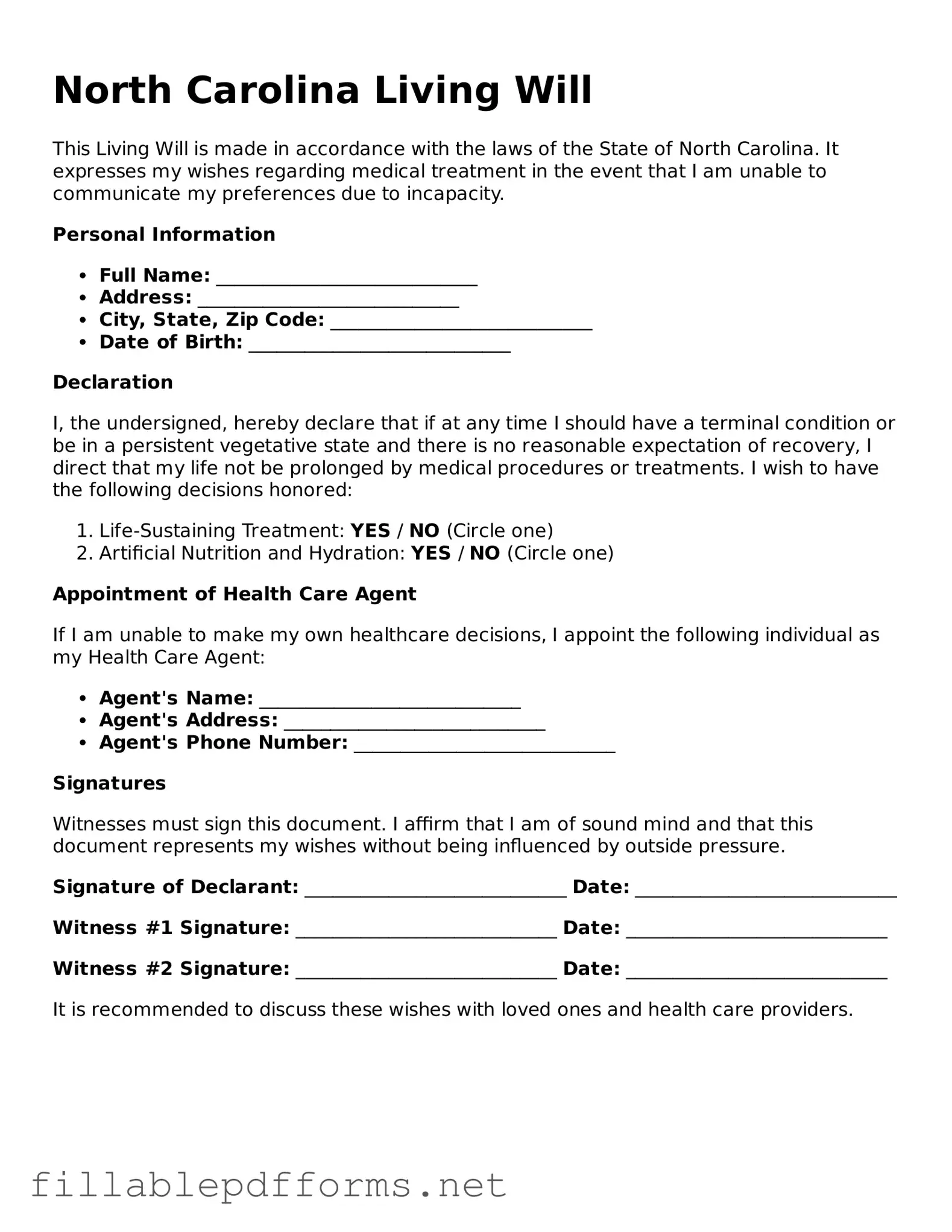Attorney-Verified Living Will Form for North Carolina State
A North Carolina Living Will is a legal document that allows individuals to express their wishes regarding medical treatment in the event they become unable to communicate those wishes themselves. This form plays a crucial role in ensuring that your healthcare preferences are respected, especially in critical situations. Understanding and completing this document can provide peace of mind for you and your loved ones.
Launch Editor Here

Attorney-Verified Living Will Form for North Carolina State
Launch Editor Here

Launch Editor Here
or
▼ Living Will PDF
Almost there — finish the form
Complete Living Will online fast — no printing, no scanning.